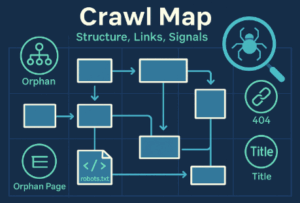
In the realm of organic SEO, a question frequently arises: how many SEO words are needed for a blog article? This question, though it appears simple, does not have a single answer. Several factors can influence the number of words needed to optimize your blog’s SEO. In this article, we will examine these factors and provide practical advice to help you optimize your blog articles.
Table of Contents
ToggleUnderstanding the Importance of SEO Words in Organic Search Ranking
The number of SEO words in a blog post plays a crucial role in the ranking of your website. Indeed, Google and other search engines analyze your site’s content to understand what it’s about. This is where SEO words come into play. They help search engines understand the subject of your content and rank it accordingly.

SEO Words and Content Quality
Simply integrating a large number of SEO words into your content is not enough to improve your organic search ranking. The quality of your content is also important. Google values content that brings value to users. Therefore, instead of focusing solely on the number of SEO words, it is also essential to produce quality content that meets the needs of your users.
The Ideal Number of Words for a Blog Article
There is no magic number of words that will guarantee a higher ranking in search results. However, several studies have shown that longer content tends to rank better. Indeed, a blog post that contains between 1,000 and 2,500 words is more likely to appear in the top search results.
In addition, the number of words is not the only factor that influences the ranking. Other factors, such as the relevance of the content, the quality of the backlinks, and the optimization of meta tags, also play a significant role.
Adapt the Length of Your Articles to Your Audience
First and foremost, adapt the number of words to your audience. If your audience prefers short, concise articles, there is no point in producing 2,500-word articles. Conversely, if your audience prefers detailed and in-depth guides, it would be wise to produce longer articles.
Balance Between Length and Quality
Above all, it is necessary to maintain a balance between the length and quality of your content. Long but poorly written or irrelevant content will not rank well. Similarly, short but high-quality content may not be detailed enough to rank well. The idea is to produce content that is both lengthy and high-quality.
In summary, there is no ideal number of SEO words for a blog article. The main thing is to produce content that is relevant and useful to your users, while naturally integrating SEO keywords into your content.
How to Integrate SEO Words into Your Content
Once you have determined the number of SEO words to put in your blog article, the next question is: how to integrate these words naturally? Here are some tips.
Use Keywords in Titles and Subtitles
Search engines attach great importance to the titles and subtitles of your content. Add your keywords to these elements. However, make sure this is done naturally and does not affect the readability of your content.
Integrate Keywords into the Body of the Article
In addition to titles and subtitles, you should also integrate your keywords into the body of your article. Try to include your keywords in the first paragraphs of your article, as Google assigns more weight to these sections. However, avoid keyword stuffing, as this could negatively impact your ranking.
Article Structure and Organic Search Ranking
The organization of your content also plays a significant role in your organic search ranking. A clear and logical structure will not only make your content easier to read for your users, but will also help search engines understand what your article is about.
Use Headers to Structure Your Content
Use headers (H1, H2, H3, etc.) to organize your content. The title of your article should be an H1, followed by H2 and H3 subtitles. This will help search engines understand the hierarchy of your content.
Use Bullet Points and Short Paragraphs
Bullet points and short paragraphs make your content easier to read and scan. They also help to highlight the important points of your article.
Integrate Internal and External Links
Internal and external links help improve your site’s SEO. Internal links point to other pages on your site, which helps improve your site’s navigation and distribute “link juice” throughout your site. External links, on the other hand, point to high-authority sites, which can help improve the credibility of your site.
Additional Considerations for the Organic SEO of Your Blog
In addition to the number of SEO words and the structure of your article, there are other factors that can influence the organic SEO of your blog. Here are some of these factors to consider.
Avoid Over-Optimization
While the use of keywords is essential for organic SEO, it is crucial to avoid over-optimization at all costs. This means that you should not use the same keyword too many times in your content. Excessive use of keywords can give the impression that you are trying to manipulate search engines, which can have a negative effect on your ranking.
Create Quality Content
The quality of the content is a crucial factor for organic SEO. Google prefers sites that offer high-quality and relevant content for users. Therefore, make sure to produce content that is not only optimized for search engines, but also useful and engaging for your readers.

Focus on Long Tail Keywords
Long-tail keywords are phrases of three words or more that are very specific. While they attract less traffic than more general keywords, they generally have a higher conversion rate. This is because users who search for long-tail phrases mostly know exactly what they want.
Conclusion
In conclusion, there is no magic number of SEO words to put in a blog post to achieve better organic SEO. This depends on many factors, including the quality of your content, how you structure your article, and how you integrate keywords. However, one thing is clear: you should always aim to produce high-quality content that meets the needs of your users. However, we recommend that you aim for a significant number of words when you aspire to have a well-positioned reference article.

Eric Ibanez
News Writer & Founder Hack The SEO
An expert in SEO since the launch of his e-commerce dedicated SaaS in 2016, Eric quickly grasped the significance of optimization for search...
Suggested Articles





One thought on “How many words are needed in a blog post for better SEO?”